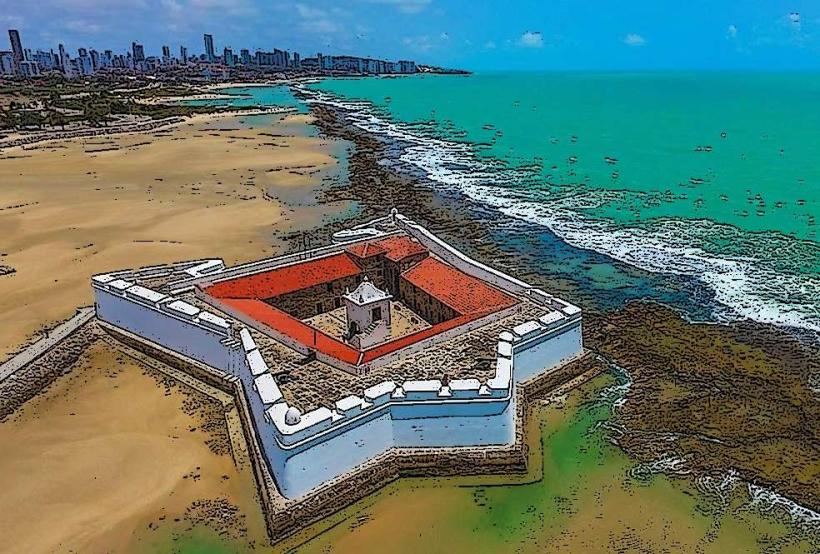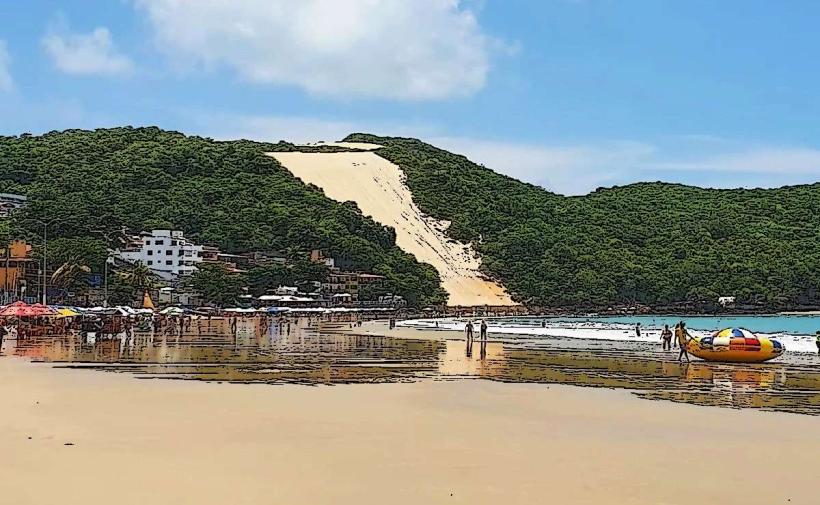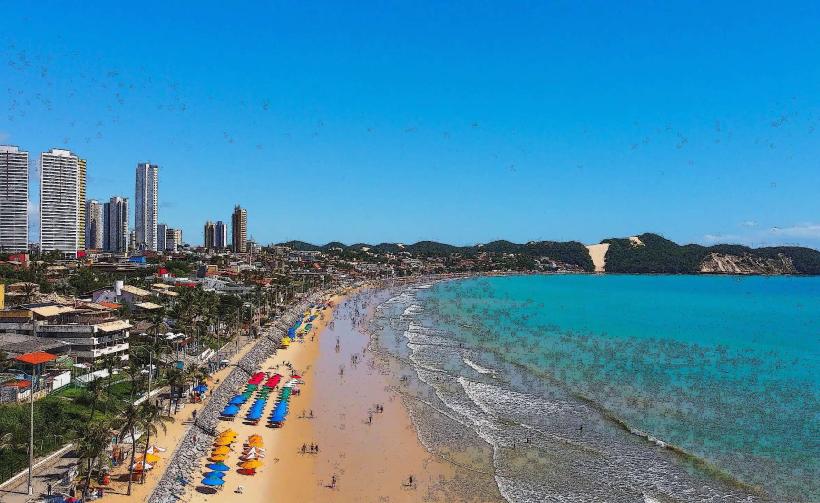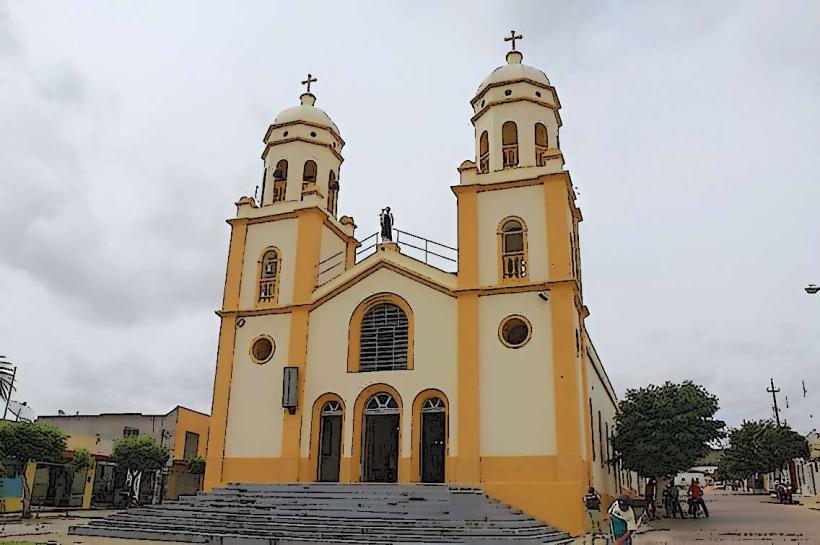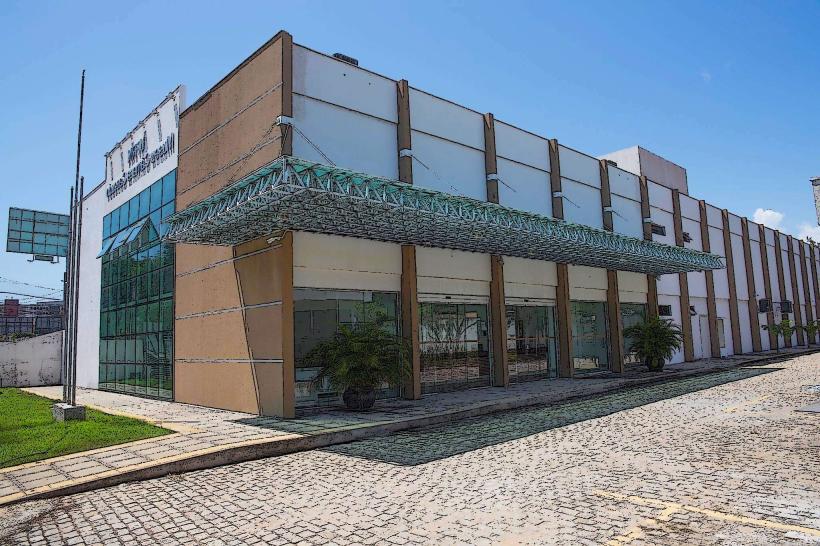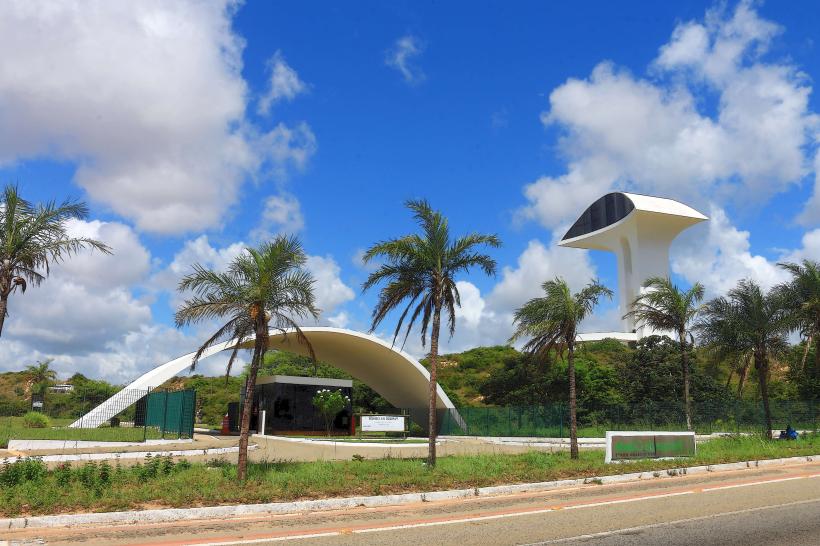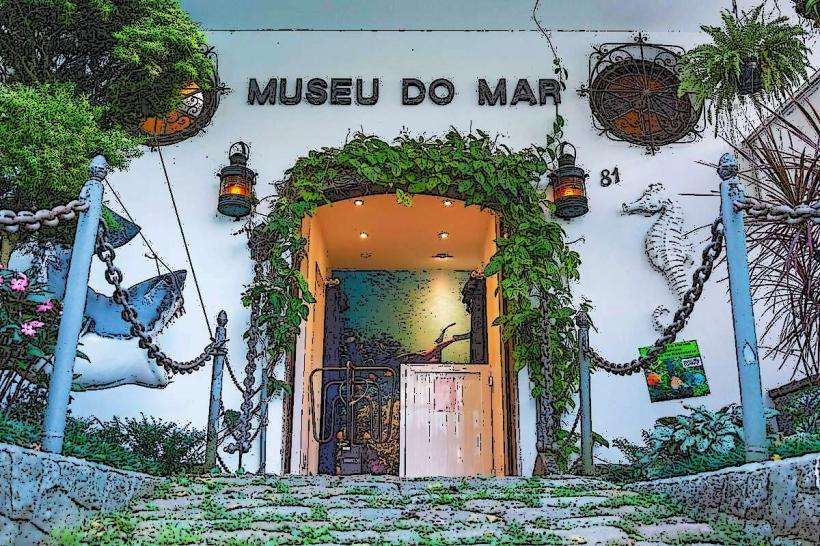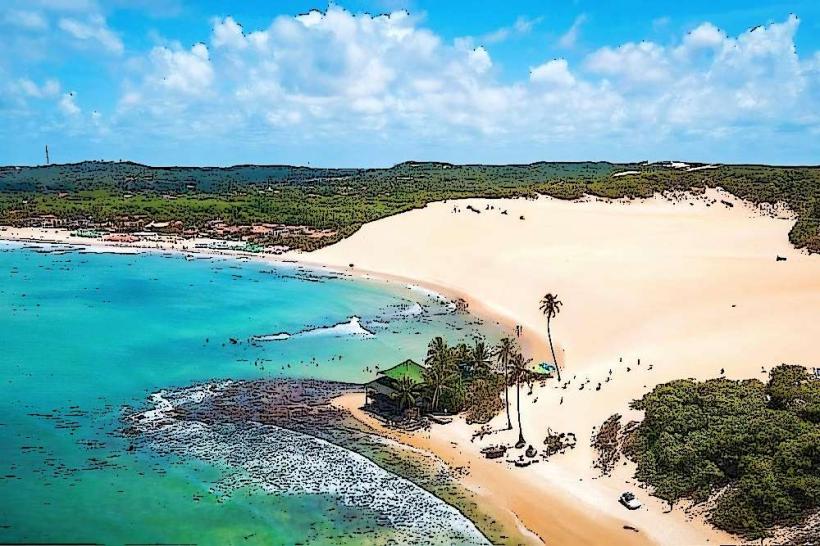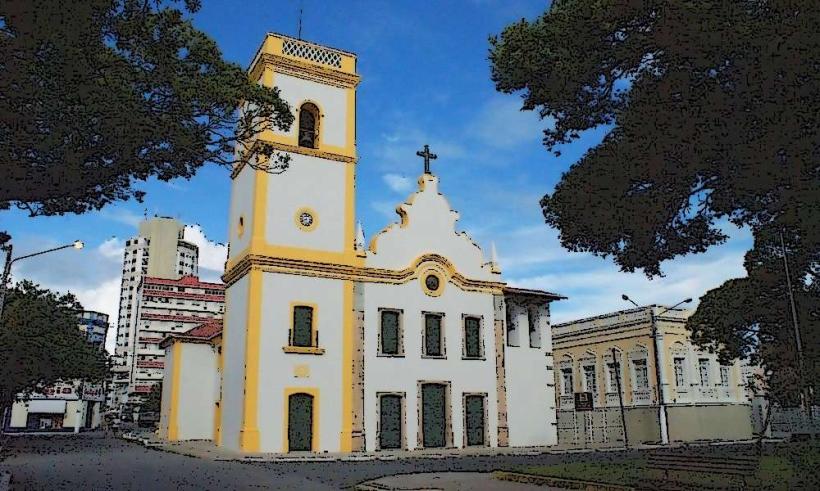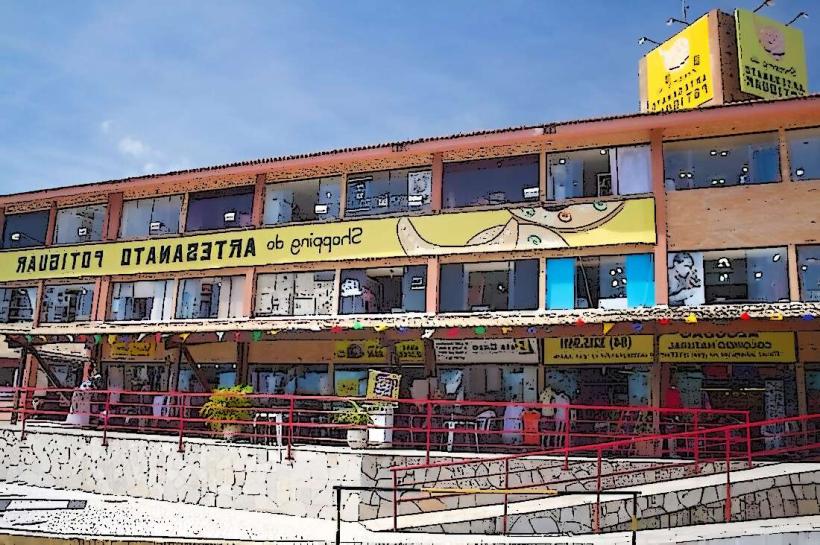Information
City: NatalCountry: Brazil
Continent: South America
Natal, Brazil, South America
Natal serves as the "City of the Sun" and a primary tourism gateway for Northeast Brazil, functioning as the capital of Rio Grande do Norte. It is situated at the mouth of the Potengi River on the Atlantic coast, at the point of South America geographically closest to Africa.
Historical Timeline
Founded on Christmas Day, December 25, 1599, Natal was established near the Forte dos Reis Magos to defend Portuguese interests against French pirates. The city was occupied by the Dutch (1633–1654) and renamed "New Amsterdam." Its modern strategic importance peaked during World War II, when it served as the "Trampoline to Victory," hosting Parnamirim Field, the largest U.S. air base outside American territory. Post-war development transitioned from cotton and salt exports to a service-based economy dominated by tourism and renewable energy research.
Demographics & Population
The metropolitan population is approximately 1.59 million in 2026. The demographic is predominantly Pardo (Multiracial) and White, with a significant "Potiguar" identity (a Tupi term for "shrimp eater"). Natal has one of the highest literacy rates in the Northeast and is known for a high quality of life relative to other regional capitals.
Urban Layout & Key Districts
Ponta Negra (South): The city's tourism core, famous for the Morro do Careca dune and the highest concentration of hotels and nightlife.
Ribeira & Cidade Alta (Central): The historic and administrative center, featuring colonial architecture and the harbor.
Via Costeira: A 10 km coastal highway lined with high-end resorts, connecting Ponta Negra to the central beaches.
Tirol & Petrópolis: The most affluent residential and commercial districts, characterized by tree-lined avenues and upscale boutiques.
Top City Landmarks
Fortaleza dos Reis Magos: A star-shaped 16th-century fort perched on a reef.
Morro do Careca: A 120-meter high sand dune that is the city’s most iconic landmark (access to the dune itself is restricted for conservation).
Newton Navarro Bridge: One of Brazil's largest cable-stayed bridges, spanning the Potengi River.
Natal Dunes State Park: The second-largest urban park in Brazil, preserving the Atlantic Forest and dunes.
Barreira do Inferno: The first rocket-launching base in South America, located south of the city.
Transportation Network
Air: Governador Aluízio Alves International Airport (NAT) is the primary entry point, located in the metropolitan area of São Gonçalo do Amarante.
Road: Grab is not operational; Uber and 99 are the standard ride-sharing apps.
Buggy Tours: An essential, specialized transportation mode for navigating the Genipabu dunes.
Rail: A commuter rail system (Sistema de Trens Urbanos) connects Natal to suburban regions like Parnamirim and Ceará-Mirim.
Safety & "Red Zones"
Natal is generally safer for tourists than Recife or Fortaleza, provided movement is restricted to the South Zone.
Red Zones: Avoid the peripheral districts in the North Zone and western outskirts (e.g., Nossa Senhora da Apresentação) due to higher crime rates.
Precautions: Do not walk on the urban beaches (Areia Preta, Praia do Meio) after sunset. Street robberies targeting cell phones occur in crowded markets and bus stops.
Digital & Financial Infrastructure
Average internet speed is 92 Mbps. 5G is widely available in Ponta Negra, Tirol, and Petrópolis. The Pix payment system is universal. Card acceptance is 100% in businesses and even among most beach vendors. ATMs are available in the Praia Shopping and Midway Mall.
Climate & Air Quality
Tropical climate with constant trade winds. Temperatures range from 24°C to 30°C year-round. Natal is scientifically recognized for having the cleanest air in the Americas (after Hawaii), largely due to the absence of heavy industry and consistent ocean breezes. The rainy season occurs from March to July.
Culture & Social Norms
The local culture is heavily influenced by its maritime and dune-based geography. Tipping is a 10% service charge. A unique social norm is the "Carnatal," the largest off-season carnival in Brazil, held annually in December. The regional diet is characterized by Carne de Sol (sun-dried beef) and Ginga com Tapioca (fried fish with tapioca), particularly at Redinha Beach.
Accommodation Zones
Ponta Negra: Recommended for tourists seeking nightlife, dining, and the iconic beach view.
Via Costeira: Recommended for those seeking resort-style, secluded stays.
Local Cost Index
1 Espresso: 8.50 BRL ($1.55)
1 Standard Lunch (Ginga com Tapioca): 25.00 BRL ($4.55)
1 Buggy Tour (Full Day): 450.00 BRL ($82.00)
1 Taxi/Uber (5km): 22.00 BRL ($4.00)
Nearby Day Trips
Genipabu Dunes: Famous for buggy rides and "dromedary" camels (25 km / 30 minutes).
Pipa Beach: A globally renowned surf town and ecological sanctuary (80 km / 1.5 hours).
Maracajaú Reefs: Known as the "Caribbean of the Northeast" for snorkeling (55 km / 1 hour).
Pirangi Cashew Tree: The world's largest cashew tree (15 km / 20 minutes).
Facts & Legends
A prominent legend involves the "Boquinha," a supernatural entity said to haunt the Potengi River. A verified historical oddity is that the Newton Navarro Bridge was designed by the same engineering firm responsible for the restoration of the Statue of Liberty's torch. Another fact: Natal was the first city in Brazil to have a Coca-Cola factory, established during WWII to supply American troops stationed at the base.

